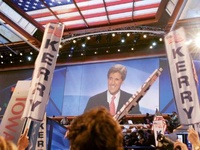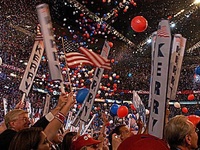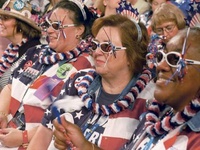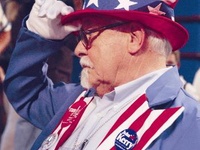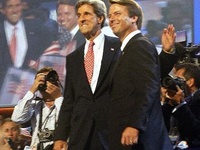Calling Sept. 11 “the worst day we have ever seen,” Kerry said that it had in fact “brought out the best in all of us.”
“I am proud that, after Sept. 11, all our people rallied to President Bush’s call for unity to meet the danger,” Kerry said. “There were no Democrats. There were no Republicans. There were only Americans. How we wish it had stayed that way.”
Perhaps in anticipation of next month’s Republican National Convention, which is scheduled to occur in Manhattan just before the third anniversary of the attacks, many of the DNC’s key speakers made prominent references to Sept. 11, most falling in line with Kerry’s non-confrontational message last night.
Ending on perhaps the most uplifting note of an almost relentlessly upbeat convention week, Kerry portrayed himself as the candidate who would promote scientific and medical advances and lead America into a rosy future.
Mentioning such past American innovations as the Wright Brothers’ aeroplane prototypes, the moon-shot program of John F. Kennedy ’40, also a former Crimson editor, and microchip technology, Kerry said he would lift current administrative restrictions on embryonic stem cell research—and, in perhaps his deftest segue, tied this into the convention’s theme of an optimistic party on the brink.
“Now it’s our time to ask: What if?”
Kerry said moments before the red, white and blue balloons fell on the convention floor. “It is time to reach for the next dream. It is time to look to the next horizon. For America, the hope is there. The sun is rising. Our best days are still to come.”
—Nicholas F. Josefowitz contributed to the reporting of this story.
—Staff writer Lauren A. E. Schuker can be reached at schuker@fas.harvard.edu.
—Staff writer Simon W. Vozick-Levinson can be reached at vozick@fas.harvard.edu.









